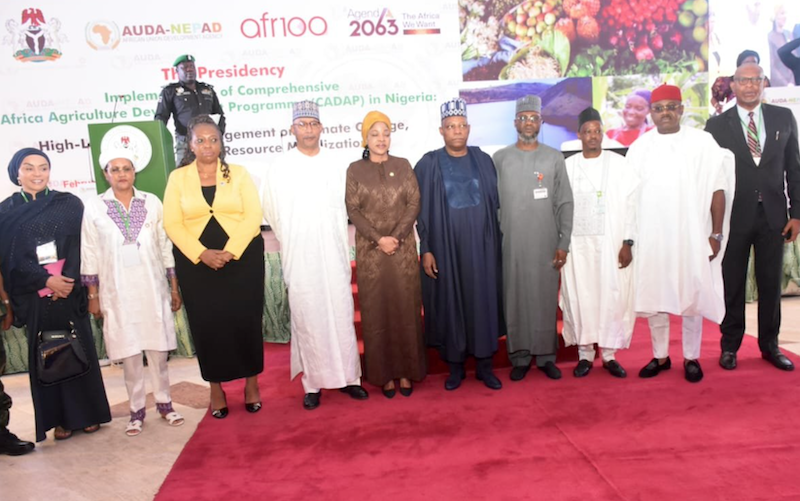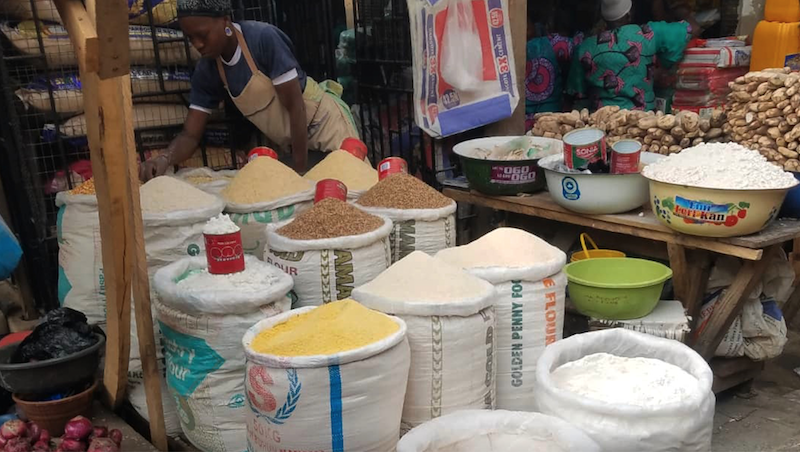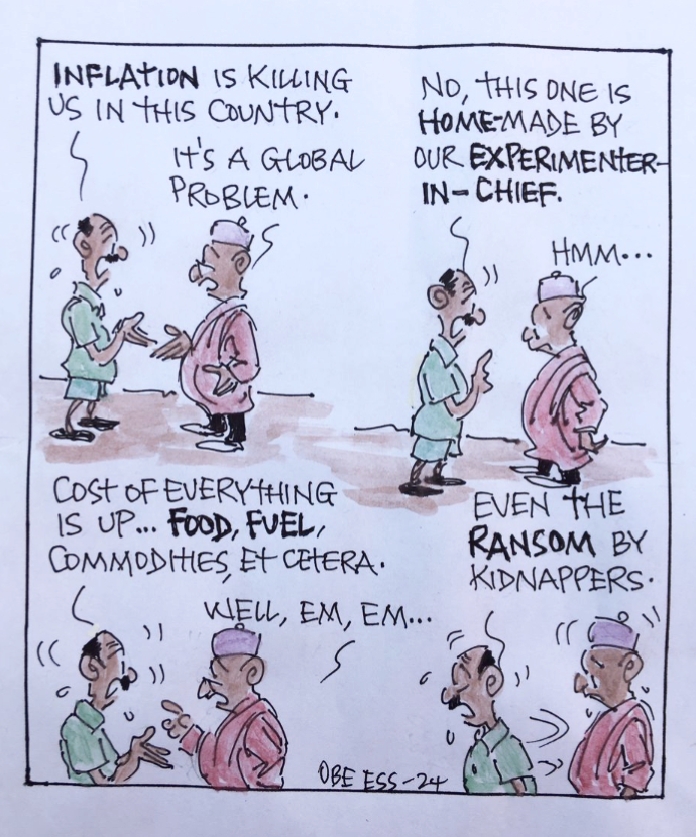The Federal Government plans to establish a National Commodity Board as a solution to the escalating food inflation in the country.
Vice President Kashim Shettima made this known on Tuesday at a two-day, high-level strategic meeting on climate change, food systems and resource mobilization, held in Abuja.
Shettima explained that the board would be given the mandate to assess and regulate food prices, as well as maintain a strategic food reserve for stabilizing prices of crucial grains and other food items.
He said the event was an attestation of Nigeria’s efforts at mitigating the effects of climate change and ensuring food security for Nigerians.
Shettima noted that food security was one of the eight areas of priority declared by President Bola Tinubu as part of his Renewed Hope Agenda.
This, according to him, led to the declaration of a state of emergency on food security.
He highlighted ongoing policy reforms by the administration to ensure food and water availability, as well as affordability.
“Our solution to the potential food crisis has become immediate, medium, and long-term strategies.
“The short-term strategy entails revitalising food supply through specific interventions like the distribution of fertilizers and grains to farmers and households to cushion the effects of subsidy removal.
“It also entails fostering collaboration between the Ministries of Agriculture and Water Resources for efficient farmland irrigation, ensuring year-round food production; and addressing price volatility by establishing a National Commodity Board.
“This board will continually assess and regulate food prices, maintaining a strategic food reserve for stabilizing prices of crucial grains and other food items.”
He assured that the Tinubu administration was fully investing in the restoration of degraded land.
According to him, there are ongoing plans to restore four million hectares, or nearly 10 million acres of degraded lands within the nation’s borders as its contribution to the AFR100 Initiative.
“I wish to assure you that we will engage our security architecture to protect the farms and the farmers so that farmers can return to the farmlands without fear of attacks.
“We won’t only make it safe for farmers to return to their farms, but we will also ensure the activation of land banks.
“There is currently 500,000 hectares of already mapped land that will be used to increase the availability of arable land for farming, which will immediately impact food output.”
Shettima said the Tinubu administration was collaborating with mechanisation companies to clear more forests and make them available for farming.
He said the Central Bank of Nigeria will also continue to play a major role in funding the agricultural value chain.
“We will deploy concessionary capital to the sector, especially towards fertilizer, processing, mechanization, seeds, chemicals, equipment, feed, labour, among others.
“The concessionary funds will ensure that food is always available and affordable, thereby having a direct impact on Nigeria’s Human Capital Index (HCI).
“This administration is focused on ensuring the HCI numbers, which currently rank as the 3rd lowest in the world, are improved for increased productivity.”
Earlier, Princess Gloria Akobundu, National Coordinator, African Union Development Agency- New Partnership for Africa’s Development (AUDA-NEPAD) Nigeria, commended Tinubu for his efforts towards making Nigeria a great nation.
“We are happy with the resolve by the administration of President Bola Tinubu to stand undeterred by any odds in his objective to build a viable, effective and great nation.”
Akobundu said NEPAD decided to convene the stakeholders’ forum in order to strengthen small holder farmers in Nigeria as a way of addressing food shortage problem in the country.








